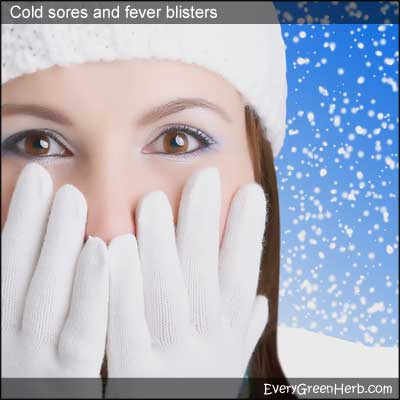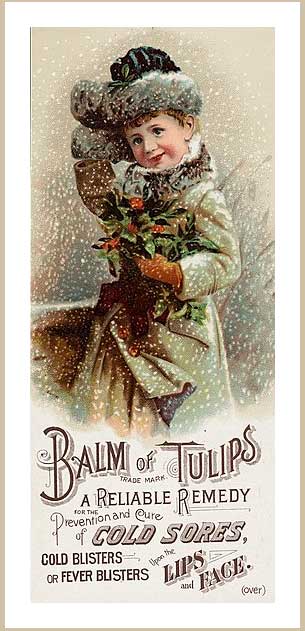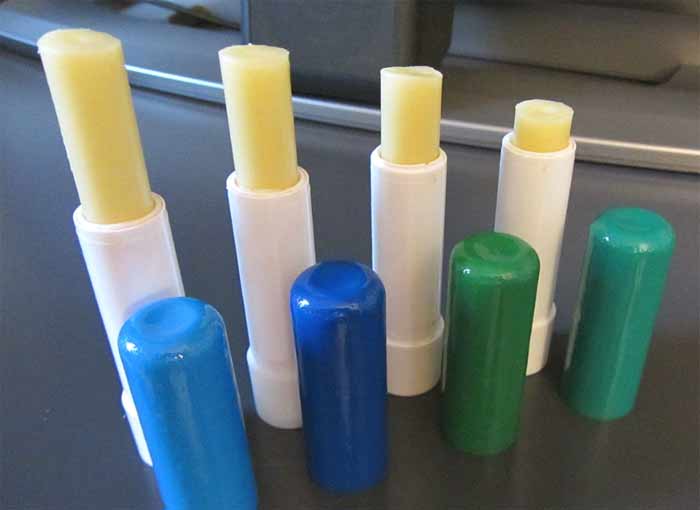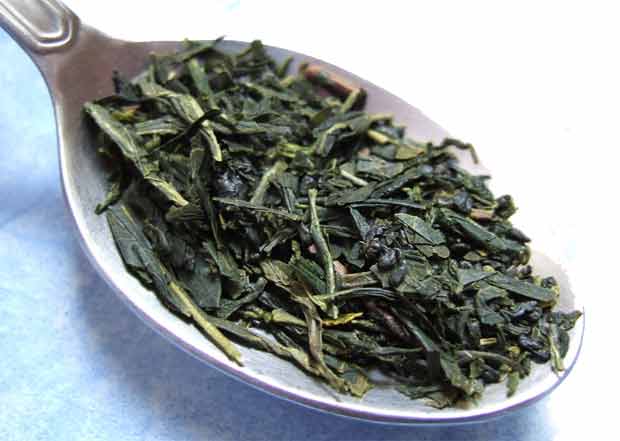Herbs for herpes and cold sores

Avoid break outs by eating more yogurt.
To avoid herpes flare ups, add more cultured and fermented foods to the diet including yogurt and sauerkraut. Avoid coffee, peanut butter, nuts, seeds, and corn.
Natural remedies work as well as over-the-counter products. Brewer's yeast, aloe vera, burdock tea, and licorice applications bring fast relief from cold sores.
What causes herpes and cold sores?
Herpes blisters, cold sores, and fever blisters are caused by the Herpes virus. The sores are contagious.
Any contact, including shared eating utensils, razors, and towels, may spread the virus to other people.
Keep herbal ointment on hand to use at the first sign of a break out.
A variation of the herpes virus also causes shingles and chicken pox.

Symptoms of cold sores and fever blisters
Early symptoms include tingling or itching followed by swelling or raised area of skin on the lip or around the mouth. Small fluid-filled blisters appear next and usually last from seven to ten days.
A formation of yellow crust signals the healing stage. Fever blisters and cold sores do not usually leave scars.
Frequent cold sores may indicate a chemistry imbalance or food allergy.
It can be difficult to find the trigger that causes outbreaks because everyone is different. Outbreaks sometimes occur after a fever, illness, or stressful situation.
They can be caused by reduced immunity, nutrient deficiencies, and hormone imbalances. Cold sores occur most often in women and are more prevalent in winter.
Cold sores may indicate a vitamin B, iron, or folic acid deficiency. They may also be caused by using toothpaste containing sodium lauryl sulfate.
Another cause is a diet of overly acid foods. Cut back on tomatoes and citrus juice to see if those might be a trigger.
Always use sunscreen on lips and mouth area, since sunburn can also cause cold sores.

Avoid fever blisters by drinking red wine.
Bioflavonoids help prevent cold sores. Red wine, green tea, and grape juice should be consumed on a regular basis.
Homemade salve to treat fever blisters and cold sores
Salves containing St. Johns wort, white oak extract, chamomile, mint, lemon balm, or sage are beneficial.
Lemon balm, also known as Sweet Melissa, makes an excellent remedy for cold sores.
Combine a tablespoon of melted beeswax with a quarter cup of olive oil and add crushed lemon balm to make a salve. Add a few drops of tea tree essential oil or lavender essential oil for extra strength. Apply before bed every night until sore is healed.
Other home remedies for treating cold sores and fever blisters
Propolis or zinc lozenges are also excellent remedies for cold sores.
Rinsing the mouth with yellowroot tea every few hours can bring relief.
Vitamin C mixed with water and applied directly to the sore may speed healing. Grapefruit essential oil is also recommended, but should be diluted before application.
Other herbal remedies include applications of echinacea, calendula, black walnut tincture, garlic juice , comfrey, or blackberry juice followed with vitamin E oil.

Castor oil and essential oils can help heal cold sores.
Applications of castor oil can also help heal cold sores. A combination of castor oil, eucalyptus essential oil and bergamot essential oil at first sign of outbreak can work wonders.
A mixture of rose essential oil and lemon balm essential oil applied directly to the cold sore also gives excellent results after just one or two applications.
The tannins in many fruit juices can help prevent and heal cold sores.
Apple, cranberry, grape, pear, prune, raspberry, blackberry, and strawberry juice contain properties that help kill the herpes virus. Drinking citrus juice may cause burning, and is best avoided during outbreaks.
Herpes, herbs, and science
Herpes simplex virus type 1 and 2 are very common human pathogens. Infections range from mild to life threatening.
Some herbal extracts are highly effective when treating herpes outbreaks. The most promising are hyssop, Sweet Melissa, Brant's Oak, gray mangrove, Aloe Vera, echinacea, thyme, green tea, turmeric, olive, licorice, and crown vetch.
- Gray mangrove contains flavonoids, fatty acids, sterols, and hydrocarbons that inhibit viral replication.
- Aloe vera gel, a mucilaginous substance, has strong antiviral activity that also inhibits viral replication.
- Hyssop, another potent remedy, shows results even with the most resistant strains of herpes.
- Melissa officinalis, containing rosmarinic acid and powerful flavonoids, interacts directly with free viral particles to inhibit attachment to host cells.
- Brant's oak is antiviral, antibacterial, and anti-inflammatory. Due to high levels of flavonoids and tannins, this oak is shown to have remarkable effects on virus replication.
- Thyme, which is often used as a tonic, also inhibits the herpes virus.
- Green tea's high levels of polyphenols, alkaloids, volatile oils, polysaccharides, amino acids, lipids, and vitamins, make it especially useful. Green tea is perfect for fighting cold sores!

The list of herbs used for fighting herpes outbreaks goes on and on. Keep trying until you find the one that works for you.
*Always dilute essential oils with carrier oils such as olive oil, grape seed oil, or almond oil before using on the body. Wash hands well after applying herbal remedies to cold sores. Always consult with your healthcare professional before using any herbal remedy.
Sources:
https://www.ncbi.nlm.nih.gov/pmc/articles/PMC5052413/
Blessings to you and yours!
Thanks so much for reading my blog. Jan.

*Note - the information on this website has not been evaluated by the Food and Drug Administration.
© 2005-2024 website design and content by Janice Boling